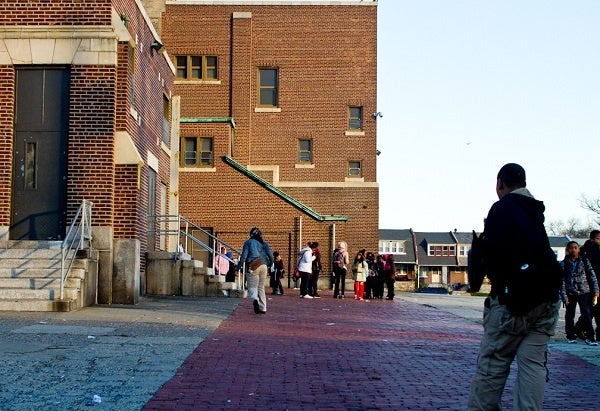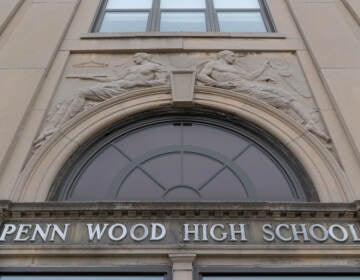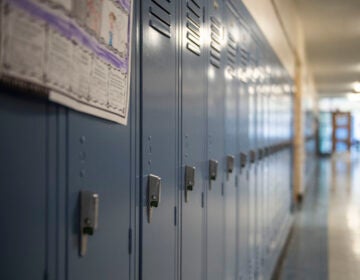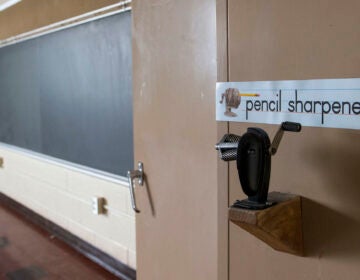Pa. school districts stressed over rising costs for pensions, special-ed and charters
Pa. school districts say rising fixed costs are leading to property tax increases and cuts to programs.

A elementary school in Philadelphia (Brad Larrison/for WHYY)
School districts across Pennsylvania say that budget stress is causing them to raise property taxes and cut school programs, according to an annual survey released by the Pennsylvania Association of School Business Officials and the Pennsylvania Association of School Administrators.
The report targets the rise of mandated expenses such as pension obligations, special-education costs and charter school payments as key drivers of budget woes.
The annual report is similar to those in years past, and calls for the state to make greater investments in school funding to support the education of the state’s 1.7 million public school students.
“Our budget surveys that have come out have said the same thing from year to year. It’s something that school districts continue to struggle with. Every year we’re surprised at how many districts are still reporting that they are furloughing staff, not filling positions, outsourcing, or increasing class sizes to save dollars,” said Hannah Barrick, director of advocacy for PASBO.
The budget report is based on survey responses from 61 percent of school districts, as well as publicly available data.
Only 16 percent of schools reported feeling that they were improving financially.
“We have an education deficit in Pennsylvania,” said Jay Himes, PASBO executive director, in the report. “School districts start from behind each year, struggling to find the revenue to cover just the basics…the result is disparate opportunities for students and disparate burden on local taxpayers, much of which could be mitigated with increased state support for education — particularly if targeted to the areas driving this annual deficit, such as special education.”
For the 2018-2019 school year, school districts also emphasized their concern for improving the safety and security of their schools. Last year, the state created a new program to provide $52 million in funding for school safety — a fraction of the more than $300 million that districts requested through a competitive grant process.
Last week, the Democratic Policy Committee held a hearing in Philadelphia arguing on moral grounds for a large influx of new state school funding.
In an interview reacting to the PASA/PASBO report, a spokesman for House Republicans sympathized with the stresses districts face because of rising fixed expenses.
“It’s something all lawmakers are aware of and working towards and trying to find a place that helps schools and also addresses the pension costs,” said Michael Straub, press secretary for State Rep. Bryan Cutler, the House Majority Leader.
Governor Wolf will give his first budget address of his second term next week. During his first term, Wolf’s larger education funding requests were met with opposition from Republican leaders and led to protracted budget standoffs.
WHYY is your source for fact-based, in-depth journalism and information. As a nonprofit organization, we rely on financial support from readers like you. Please give today.





